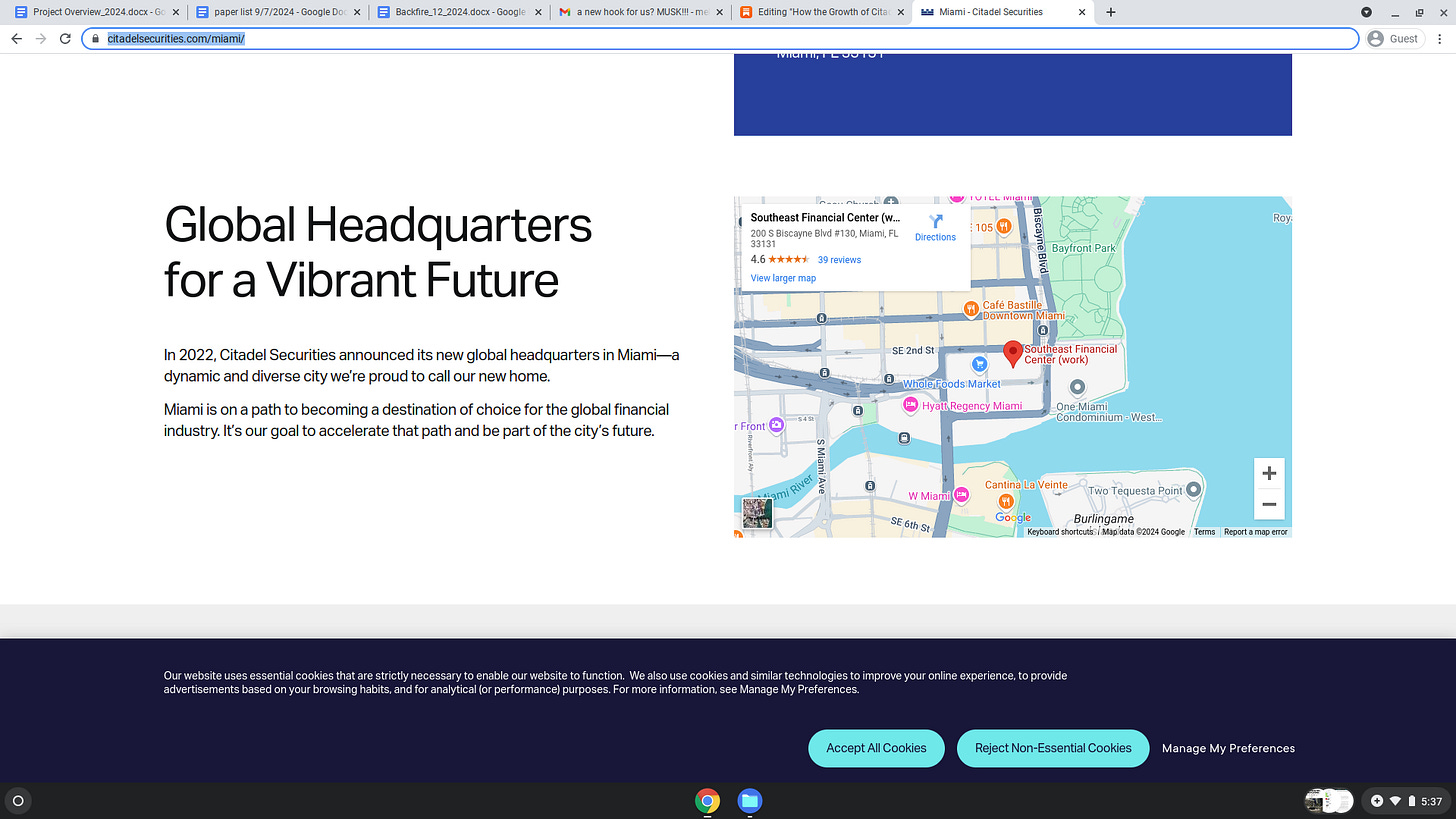Back in 2013, Jeff Goodell wrote a provocative piece for Rolling Stone magazine called “Goodbye Miami”.
The point of my brief Substack column is that Citadel’s boss Ken Griffin would want to relabel such a piece; “Good Buy Miami”. Griffin is literally building a Citadel Complex in Miami.
The Wall Street Journal reports on Griffin’s land acquisition in the City.
Griffin’s investment in Miami means that he becomes one of the city’s leading boosters. His core company’s profits decline if extreme weather damages Miami. He has a financial stake in advising the Mayor and the other civic leaders to think about what local public goods are needed to protect the city so that a future hurricane doesn’t devastate the city. He has the access to the data, and the capital and the political leverage to nudge “short term” thinking elected officials to take a long term perspective. His self interest protects others in the city who have less clout.
Economists will note the analogy here to the Coase Light House example. Coase argued that a private firm may provide a light house if its private benefits from this piece of infrastructure exceed its private costs. Such an entity will provide public goods out of its own self interest. I claim that the same logic applies to Griffin.
If Miami is perceived to be vulnerable to extreme shocks, then Griffin will have to pay more to attract talent to work at Citadel and his real estate holdings will be less valuable. He has an incentive to push the business community and local leaders to invest in local resilience and to seek out the best ideas from around the world on flood protection. The mechanical climate IAM economics literature abstracts away from all of this. While the New York Times worries about the corrupting influence of the very rich, this is counter-example. Their presence in a city helps to protect the city because they do not free ride. They have so much “skin in the game” that this helps to bolster the place.
Now, I continue to believe that cities should pay for their own defenses. The Federal Government should provide data and expertise about emerging risks but localities should pay using taxes and bonds for their own defenses. This local public finance approach nudges voters/tax payers to pay attention to what their mayor is up to and to monitor this person to keep him/her accountable.
It would interest me to see a New York Times reporter interview Griffin about how worried is he about climate change and severe weather in Miami. He moved away from Chicago. He expressed concerns about Chicago crime, taxes and weak public services. Footloose firms help to discipline progressive mayors if they don’t cost effectively spend public funds.






I understand the broad point being made and I see how it could work. My concern would be though that non-local taxes will step in because of influence/'too-big-too-fail'. Unless some form contract is signed or an state/federal insurance policy, I feel that this is bound to be 'abused' (state and federal government will, and should, step-in to aid once disaster strikes.)